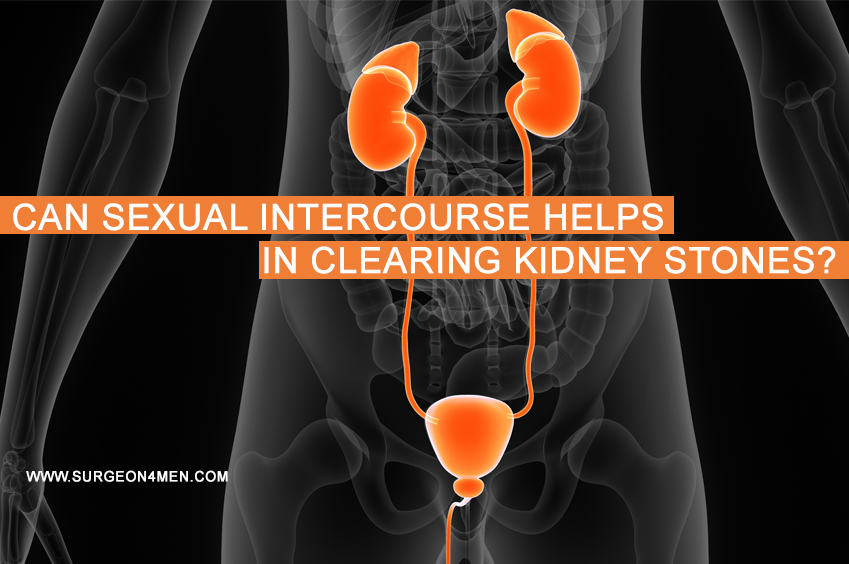Can Sexual Intercourse Helps In Clearing Kidney Stones?
It is logical to assume that symptomatic kidney stones can significantly compromise the quality of sex life, but according to a new study conducted by scientists at a research center at Ankara, Turkey, it was suggested that sexual intercourse can help in the removal of small kidney stones. According to the study reported in the Urology journal (1), scientists presented statistical evidence that men who engage in sexual intercourse at least three to four times a week, are more likely to pass kidney stones in the urine.
What Are Kidney Stones?
Uric acid and minerals like calcium and oxalates binds together to form stones of varying sizes (sometimes ranging in size up to 4 to 5 cm in diameter). The composition, size and symptoms of kidney stones vary from person to person, but it is generally believed that the pain due to kidney stones is severe. In addition, the treatment of kidney stones is often tricky.
Formation of kidney stones is more common in men because they are more likely to get dehydrated due to long labor hours and strenuous physical work. Dehydration can lead to higher saturation of minerals in the urine; thereby leading to crystallization and stone formation. High intake of protein and meaty diets can also put you at higher risk of kidney stone formation (because uric acid levels increases as part of protein metabolism).
Details Of The Study
Turkish scientists conducted a study at Ankara Training and Research Hospital on 75 male patients, who were selected from the Urology department of hospital with known diagnosis of renal stones. The study sample was divided into three groups, as under:
- Group A was put on drug Tamsulosin to also address the symptoms of difficulty in urination due to enlarged prostate.
- Group B was assigned to engage in sexual intercourse, at least three to four times a week
- Group C was subjected to standard therapy for kidney stones and were used as control group in the study.
 After 2 weeks, it was observed that out of 31 study participants who were directed to have sex, 26 successfully passed kidney stones via urination. On the other hand, only 10 out of 21 participants in the group A (Tamsulosin therapy) were able to get rid of their kidney stones. The outcome was worse in Group C in whom only 8 of 23 men were able to pass the stones via urination.
After 2 weeks, it was observed that out of 31 study participants who were directed to have sex, 26 successfully passed kidney stones via urination. On the other hand, only 10 out of 21 participants in the group A (Tamsulosin therapy) were able to get rid of their kidney stones. The outcome was worse in Group C in whom only 8 of 23 men were able to pass the stones via urination.
The science behind sex and removal of kidney stones is simple. Scientists explain that during sexual intercourse or arousal, blood vessels produce copious amounts of nitric acid that acts as a natural vasodilator. Nitric acid also relaxes the tube which carries the urine from kidney to the bladder i.e. ureter. Relaxation of ureter makes the passage of kidney stones easier with minimal discomfort. Moreover, the male orgasm also has the ability to relax the ureter muscles. The Turkish researchers while concluding their studies suggested that men who have distal ureteral stones (less than or equal to 6 mm) can increase their chances of impulsive passage of kidney stones if they engage in sex at least 3 to 4 times a week.
Another study was conducted to compare the effects of drug tamsulosin and placebo treatment on kidney stones of various sizes, according to which drug tamsulosin is more effective in managing large kidney stones. For small kidney stones, conservative therapy is usually helpful at achieving desired results.
Are There Any Risks Or Adverse Effects Associated With This Practice?
Although, encouraging couples to engage in sexual intercourse is always healthy for relationships and bonding reasons, but in some cases, it may lead to some side effects. For example, passage of kidney stones via urination can be unbearably painful for the patient. In addition, some larger stones may get impacted in the ureter to cause colic, inflammation and serious infection.
Several medical and surgical options can also be used, depending upon the size of stones and severity of symptoms. Most common treatment modalities for the removal of kidney stones are:
- Muscle Relaxants: These drugs relaxes the muscular walls of ureter to allow easy passage of stones.
- Lithotripsy: Sometimes shockwaves are used to break larger stones (up to 1-2cm) into smaller crystals for easy removal with urine.
- Laser therapy can also be used to break and dissolve renal stones.
Healthcare providers usually advice surgical procedures under general anesthesia for stones that are larger than 2cm. During surgical procedure, telescope is inserted from the back and either whole stone is removed as it is or a pneumatic drill is used to break the stones in tiny pieces for easy removal.
Speak to your doctor to learn what interventions are most suitable in your case.
References
1. Doluoglu, O. G., Demirbas, A., Kilinc, M. F., Karakan, T., Kabar, M., Bozkurt, S., & Resorlu, B. (2015). Can sexual intercourse be an alternative therapy for distal ureteral stones? A prospective, randomized, controlled study. Urology, 86(1), 19-24.
2. Pearle, M. S., Goldfarb, D. S., Assimos, D. G., Curhan, G., Denu-Ciocca, C. J., Matlaga, B. R., … & White, J. R. (2014). Medical management of kidney stones: AUA guideline. The Journal of urology, 192(2), 316-324.
3. Scales, C. D., Lai, J. C., Dick, A. W., Hanley, J. M., Van Meijgaard, J., Setodji, C. M., & Saigal, C. S. (2014). Comparative effectiveness of shock wave lithotripsy and ureteroscopy for treating patients with kidney stones. JAMA surgery, 149(7), 648-653.

